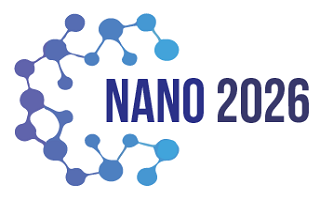3rd World Congress on
Nanotechnology
October 29-30, 2026 | Berlin, Germany

Nano 2026

Polytechnic University of Madrid, Spain
Abstract:
The escalating use of 3D printing underscores the urgent need to address the environmental repercussions tied to filament waste disposal. Printable filaments, crafted from various thermoplastics or composites with metals and ceramics, drive the quest for polymer nanocomposites to enhance 3D-printed part performance, particularly via fused deposition modeling (FDM). Notably, polylactic acid (PLA), esteemed for good mechanical performance, printability, biocompatibility, and biodegradability, reigns among the favored 3D printing polymers, serving diverse applications from toys, biomedical applications, to food packaging.In this study, 3D-printed PLA filament waste loaded with ceramic particles were mechanically recycled and further used to produce films for agricultural applications. Residues from two nanocomposites: graphite, graphene, and magnesium in the first, and Titania in the second, were blended with virgin PLA. To favor the dispersion of the nanoparticles in the nanocomposite within the recycled and virgin PLA matrix, maleinized linseed oil (MLO) was used as plasticizer. A PLA-MLO masterbach was prepared and was then blended with 30, 40, and 50 wt.% of each PLA-nanoparticles waste by extrusion and further processed into films through calendering lamination.
Differential scanning analysis revealed that graphite, graphene, and magnesium did not affect PLA's thermal transitions. In contrast, films with Titania displayed a double melting peak, suggesting that the material crystallized in different structures probably due to component separation within the film. All the samples were completed disintegrated under composting conditions after 7 days. This comprehensive strategy not only tackles environmental concerns tied to 3D printing waste but also proposes a pragmatic solution for repurposing recycled PLA into films for agricultural applications.
Biography:
Marina P Arrieta
completed his PhD in 2014 from Polytechnic University of Madrid, Spain. She
currently leads the POLCA research group of the Polytechnical University of
Madrid. She does research in the field of Synthesis and Processing of biopolymers
and the revalorization of food industries by-products for the development of sustainable
(nano)composites with multifunctional properties intended for food packaging or
agricultural applications. She has published more than 80 papers (h-index: 36) in JCR journals with more
than 4700 citations. She has participated in several competitive research
projects, being Principal Investigator in 6 of them.
